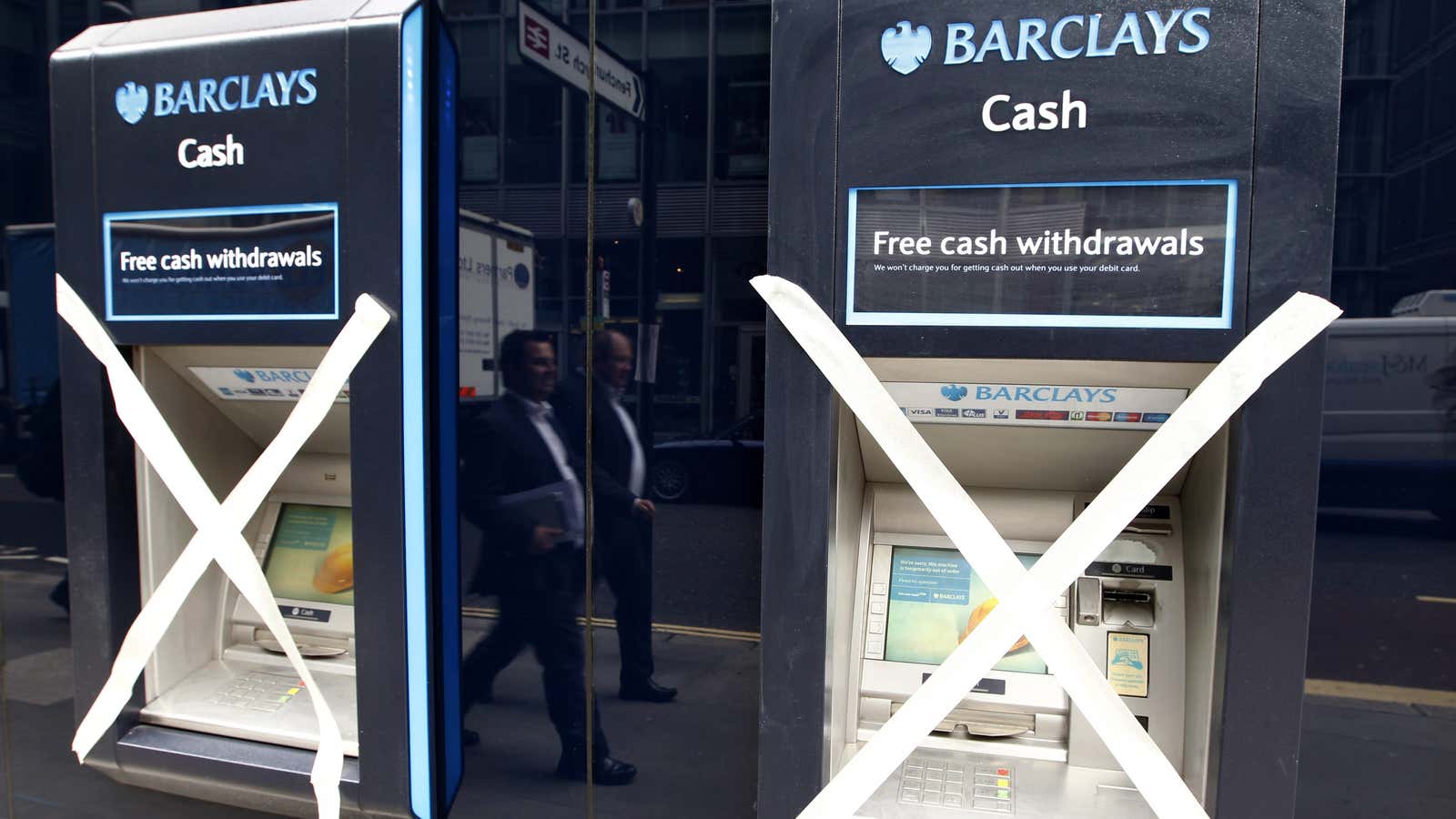In a world where we’re conditioned to believe the customer is always right, it’s jarring to hear of a company dumping clients. But commerce is a two-way street, and when corporations don’t profit from a relationship, they’ll find a way to escape.
Barclays is warning 7,000 of its lowest-volume trading clients they must do more business with the investment bank or risk being tossed to the curb, Bloomberg reports. The bank already has shed 17,000 clients and is looking to pare more to focus on its more profitable customers.
The UK-based bank isn’t alone in scrutinizing its client book. In the aftermath of the financial crisis, new regulations mean that investment banks are spending more on compliance and can take fewer riskier bets, leaving less bandwidth for relationships that aren’t contributing to the bottom line. Deutsche Bank is scaling back coverage of about 3,400 customers, while Morgan Stanley and Citigroup have begun separating their clients into tiers, based on their profitability.
It isn’t just finance customers who are getting squeezed out. In 2009, General Motors announced it would end its relationships with 1,100 auto dealerships, another consequence of the financial crisis. John Deere, the farm equipment manufacturer, has spent decades winnowing down its network of dealers, pressuring smaller ones to consolidate, in order to streamline management and limit price-cutting among competing dealers.
Deere’s former CEO, Robert Lane, was blunt in explaining how the company rationalized dumping long-time dealers. “For years we talked about Deere as a family,” Lane told the Wall Street Journal in 2007. “The fact is, we are not a family. What we are is a high-performance team….If someone is not pulling their weight, you’re not on the high-performance team anymore.”
Small businesses have long mastered the art of ditching customers who complain too much, waste the owner’s time, or don’t pay their bills. Techniques include ignoring their complaints, requiring they pay with cash only, or suggesting other businesses for them to patronize instead. Barclays may want to take notes.
